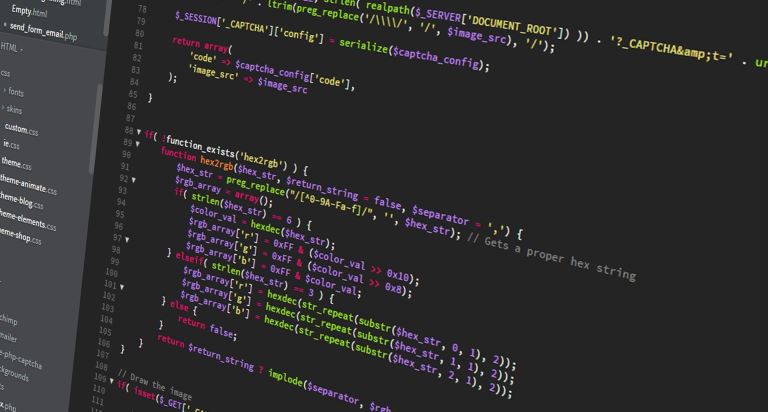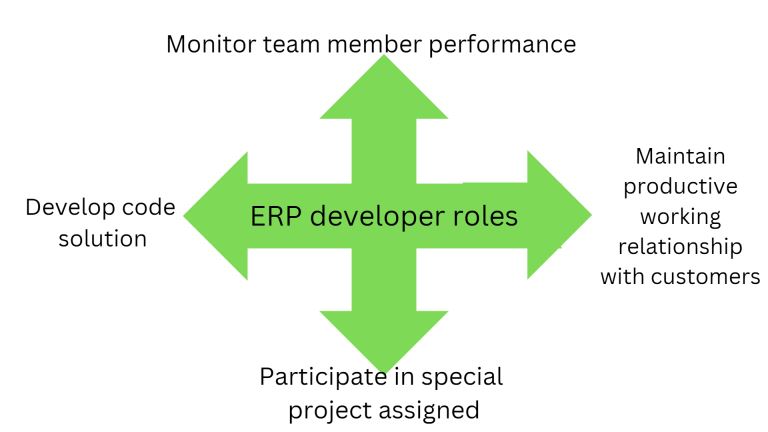
You are on the right track if you are considering investing in an ERP solution. ERP solutions are essential for your business, and without a doubt, you need them. This article will be a guide to help you learn about the reasons why you should invest in ERP solutions for your business's success.
There are several reasons why ERP solutions are essential for your business; improved productivity, improved data security, making realistic and accurate forecasts, better analytics, improved inventory monitoring, improved accessibility, cost saving, and improved collaboration.
Get to learn more about the factors to consider when choosing an ERP solution for your business.
ERP Solutions Are Essential For Your Business Success. Find Out Why
In today's competitive business world, success comes to those with the right resources and support to help them manage all aspects of their organization, from sales to finance to HR and more. One way businesses can maximize productivity, efficiency, and profitability is by implementing an ERP solution, short for enterprise resource planning software. How will it help your business become more profitable?
What are the Skills of an ERP Developer?
To land the job you want as an ERP Developer, it's essential to develop the necessary skills that will allow you to succeed in that job and keep your boss happy. While specific skills vary from job to job, there are some general skills that every ERP Developer should be proficient in and keep up-to-date on as technology advances and business requirements change over time. Check the table below;
| Good communication skills | Being able to communicate with your team members is essential for any position. As an ERP developer, you'll need to be able to speak technically and in terms, the general public will understand. |
| Programming knowledge | Programming knowledge is essential for a successful career as an ERP developer. The most popular programming languages in the industry are C, C++, and Java. |
| Data analysis | It is a fundamental skill for any business. In the world of big data, where the volume and velocity of data are constantly increasing, it's essential to make sense of the information being generated. |
ERP software provides real-time visibility across the enterprise, empowering management and employees to respond quickly to changes that affect day-to-day operations. Simplified workflows and data feed, actionable dashboards, and mobile and web access all result in higher levels of employee engagement that lead to better productivity.
Reasons ERP solutions are essential for your business's success.
1. Improved Productivity
ERP software provides real-time visibility across the enterprise, empowering management and employees to respond quickly to changes that affect day-to-day operations. Simplified workflows and data feed, actionable dashboards, and mobile and web access all result in higher levels of employee engagement that lead to better productivity.
2. Improving Data Security
Security is crucial for any company that stores its data in an electronic format. One of the best ways to improve data security is to implement some ERP solutions into your workflow. For example, you could use Inventory Management Software for inventory management and Production Planning Software for production planning. These types of software have robust security measures in place, giving you peace of mind knowing that your data is safe from hackers and others who might seek to exploit it.
3. Making Realistic, Accurate Forecasts
An accurate forecast lets you know where your business is headed and helps with planning decisions. Managing the money going in and out of your company can be challenging without one. Forecasts are crucial for long-term projects or growth strategies where you need more than one year's data to predict success. Forecasting may seem like a lot of work at first, but if it is something you feel passionate about, that could be the critical ingredient for success.
4. Better Analytics
The first and most important reason why ERP solutions are essential for your business success is analytics. In short, with accurate, detailed data on your business operations, you can more accurately predict future outcomes. Analytics also provide valuable insight into opportunities lurking beneath the surface.
5. Improved Inventory Monitoring
Inventory monitoring can save time and money by identifying when something goes missing. Improving your inventory monitoring is the perfect way to leverage technologies to minimize problems, no matter how small. It will also help keep both you and your employees accountable for what is going on with your products. Plus, improved inventory management helps streamline operations - making it easier to sell higher product volumes while cutting administrative costs.
6. Improve accessibility
One of the critical reasons that an ERP solution is essential for your business success is that it helps you with scalability. Even if you're starting, you'll have tools as your company grows and needs to expand to keep up with demand. Second, an enterprise resource planning system will help you better organize and utilize your data, allowing you to make more informed decisions about inventory levels and stock checks.
7. Cost Saving
ERP software can help make your business more cost-effective by streamlining operational and inventory tasks that are expensive for your company to handle. It is not the only cost-saving benefit of an ERP system, but it is a major one.
8. Improved Collaboration
ERP software solutions are a great way to get your employees involved in executing day-to-day business practices. The more people you have engaged in decision-making, your company will be better equipped to make intelligent choices.
What are the factors to consider when choosing an ERP software
Enterprise resource planning (ERP) software keeps track of an organization's business data to optimize efficiency and eliminate redundancies. With so many different ERP systems available, you might not know where to start when deciding which solution is best for your company. Here are factors to consider when choosing ERP software.
1. The total cost of ownership and ROI
Is the cost of the solution fair, competitive, and appropriate for your needs? Price can be difficult to compare without looking at the total cost of ownership and return on investment (ROI). An option with lower initial costs but higher TCO or ROI might be more affordable.
2. Integration with existing systems
When considering new ERP software, you first want to consider how well it integrates with your existing systems. It is especially true if you already use other business management software such as Xero or QuickBooks. Understanding the level of integration possible with the software will allow you to decide whether it's worth spending a little more time upgrading your current software and data setup or if now is the time for a complete switch.
3. Budget and resources
The budget and resources for the business are significant deciding factors in what software will be best for the company. It is essential that the software meets the customer's needs and that it aligns with their goals. Business size also dictates this decision because when resources are constrained, smaller companies need systems that provide more out-of-the-box features with less customizing required.
4. Scalability and reliability
The ERP system you choose will be vital to the long-term success of your business. You'll need it for financial reporting and compliance and general operations across all parts of your company. You must pick a system that is scalable and reliable so that it can grow with your business.
5. User interface
It is not enough for an ERP software package to work well. It must be easy for employees to use the system. Paying close attention to your company's needs and ensuring the chosen package meets them are critical factors when deciding which package is best. Understanding your employees' needs can help minimize inefficiencies and frustrations.
6. User support
Good user support is critical. If you don't have good access to tech support when your ERP system isn't working, that could be a significant setback for your business. That could be a significant setback if you don't have good access to tech support when your ERP system isn't working. Select an ERP provider with 24/7 customer service so there are no time gaps between help calls.
7. Reliability
Choosing reliable ERP software is more than finding something on Google and clicking the buy button. You must be careful when looking for an option, as it can make or break your business. There are many different aspects that you need to consider, with one of the most important being reliability. You'll find out what software companies have used and how they've experienced it.
What is the Role of an ERP Developer?
The role of the ERP developer differs from company to company, but all developers have one thing in common—they are essential to streamlining businesses and saving time. The below chart shows some of the roles of an ERP developer.
Conclusion
Many businesses overlook the importance of software that can automate business processes and use inefficient manual processes instead. The bottom line is that organizations without a suitable ERP solution won't be able to grow as quickly as they could, which will put them at a significant disadvantage in the marketplace. You can reach out to Guru solutions for all your ERP solutions services.









